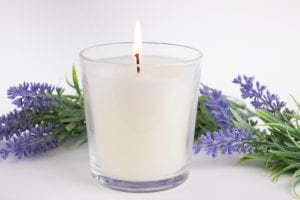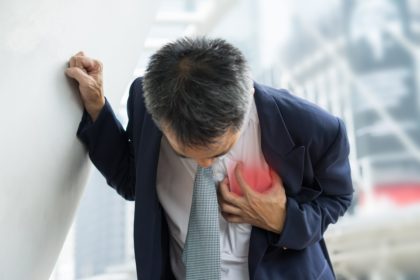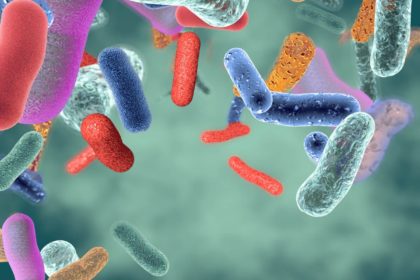Healthy living begins at home. Think of your house like a second skin. Whatever you rub, pour, sprinkle, or spray on in order to clean it can end up in your body. Here are some tips to keep your home (and you) healthy.
Take off your shoes and keep germs from walking into your house. The Japanese were way ahead of Westerners with this custom. Along with dirt and grime, your shoes can track in fecal bacteria originating in restrooms or from the outdoors (think pet poop) and can harbor various other types of bacteria that can cause serious infections.
In Japan, it’s also customary to wear special “toilet slippers” that are only worn in the bathroom.
Treat your clothes like your skin. If you wouldn’t wash your body with it, then don’t clean your clothes in it. Avoid toxic chemicals and animal fats. Always wash new clothes before wearing them. New fabric finishes contain formaldehyde, fragranced starches and insecticides. Soak them in one cup or more of baking soda before washing them to neutralize these potentially allergenic chemicals.

Don’t try to freshen your home with disinfectant sprays. Disinfectant sprays are manufactured to kill viruses, bacteria and fungi on surfaces… not in the air. Some of the ‘sanitizing sprays’ on the market claim to “kill odor-causing bacteria in the air”. However, be aware of the ingredients that are supposedly ‘refreshing’ the air you breathe.
Once inhaled, these chemicals are absorbed into the bloodstream. The majority of germs are airborne, invisibly transferred and continually reproduce. Clean the air by opening doors and windows for a short period of time and as frequently as possible.
Use good ol’ soap and water. Overuse of commercial antibacterial hand soaps can breed chemical- and antibiotic-insensitive bacteria. It’s the frequency and regularity of cleaning that most dramatically affects your health. In most cases, good scrubbing in hot or warm sudsy water along with fresh air and frequent hand washing are all that’s really needed.
Keep it clean. Kitchen cleaning cloths and sponges can harbor and spread a host of bacteria, including E. coli. This bacteria can cause intestinal and urinary infections, meningitis and diarrhea and may be life-threatening to children and the elderly. To sanitize, run your cleaning sponge through the dishwasher daily or rinse it, then microwave on high for two minutes.
Get rid of dust. Ever wonder where all that dust comes from? Well, it’s YOU. Dust is made up of your own dead skin cells…and you shed about a million per day. If you have pets, they contribute to the accumulation of all that dust too. Dust mites love feasting on dander and dead skin, so included in dust is dust mite poop. Vacuum your mattress, launder your bedding and blankets in HOT water, and use a microfiber cloth to trap and hold dust.
 Use soy candles. They’re healthier and you’ll love how easy it is to clean melted soy wax off tablecloths and candle holders. Paraffin wax, a petroleum distillate, is a by-product of petroleum refining. Other members of this group of hydrocarbon-based chemical substances include gasoline, kerosene, and mineral spirits. Low levels of acetone, benzene and mercury have been found in paraffin wax candles. When burned, these toxic substances may be emitted in the soot particles.
Use soy candles. They’re healthier and you’ll love how easy it is to clean melted soy wax off tablecloths and candle holders. Paraffin wax, a petroleum distillate, is a by-product of petroleum refining. Other members of this group of hydrocarbon-based chemical substances include gasoline, kerosene, and mineral spirits. Low levels of acetone, benzene and mercury have been found in paraffin wax candles. When burned, these toxic substances may be emitted in the soot particles.
Don’t nuke in plastic. Use ceramic or glass containers to heat foods and use unbleached wax paper, parchment paper or unbleached paper towels to cover foods and catch splatters. Plastic is a petroleum product and the chemicals (known to have estrogen-mimicking properties) can leach into your food.

Practice the three R’s of good basic hand washing. Rub well, recite the alphabet, and rinse a LOT. Spend at least 30 seconds (about the time it takes to recite the alphabet from A to Z) while lathering your hands to thoroughly suspend dirt and germs. Then rinse, rinse and rinse!
Soap works by loosening and binding to dirt, then lifting it up and off. Soap and dirt become one unit. If the soap isn’t completely rinsed out, then neither is the dirt. The same principle applies to your laundry. Too much soap = dirty, irritating clothes! Use plenty of water to carry away the loosened dirt and oils. For a full-sized load, use half the recommended amount of your favorite detergent.
Flush with the lid down…that especially goes for the boys and men! Imagine, you leave a ‘deposit’ and flush the toilet. Particles from the drop splash up into the air, onto the seat, walls, and on things (like your toothbrush!) that are in the vicinity. Ick.





